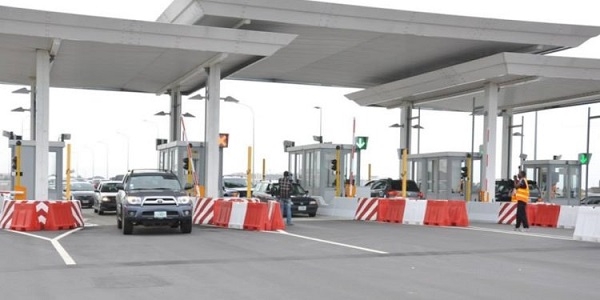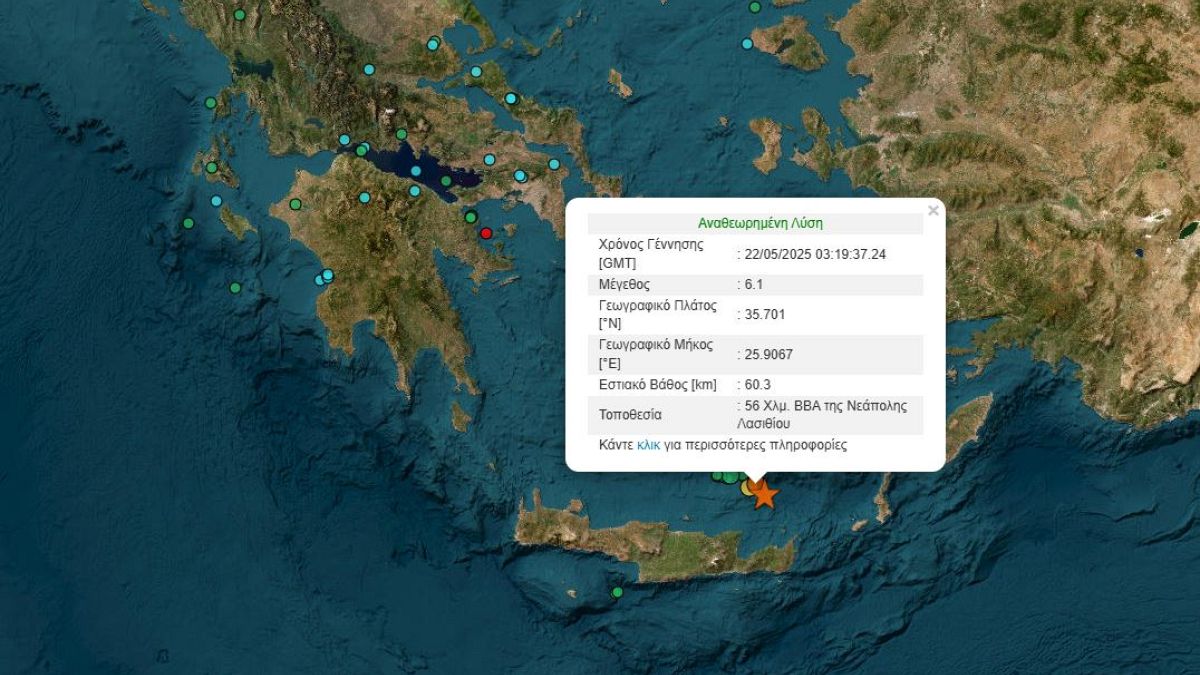Greece Earthquake Rocks Crete for the Second Time in May Is It Safe to Travel Now? - Travel And Tour World
Thursday, May 22, 2025

Crete has experienced two earthquakes in May. Is it still safe to travel to the Greek island? Here’s what you need to know before planning your visit.
A 6.1 magnitude earthquake struck off the coast of Crete early this morning, Thursday, 22 May, sending tremors through several Aegean islands, as well as parts of mainland Greece, Turkey, and Israel. The earthquake’s epicenter was located approximately 56 kilometers northeast of Heraklion, the island’s capital, and it was felt in regions as far away as Chania, Rethymno, and Athens. Despite the significant tremors, authorities have reported that there was no major damage, and the threat of a tsunami or further seismic disturbances appears minimal.
This marks the second time in May that Crete has experienced seismic activity, with today’s quake being stronger than the 5.7 magnitude tremor that struck the island just eight days earlier. However, unlike the earlier quake, which was followed by additional aftershocks, this latest earthquake is not expected to lead to further seismic activity in the coming days. Local officials have reassured residents and visitors that the risk of additional disturbances is low.
While the earthquake led to landslides on local roads and inflicted minor damage to buildings in Heraklion, there have been no reports of serious injuries or deaths.Authorities continue to monitor the situation, but the overall impact has been relatively limited. In the wake of the tremor, there have been no reports of widespread infrastructure failure, and the local population has been urged to remain vigilant and informed through official channels.
The timing of the earthquake is particularly noteworthy because Crete and its surrounding regions are well-known for their seismic activity. The island lies in an area where several tectonic plates meet, making it one of Europe’s most earthquake-prone locations. This latest event highlights the ongoing seismic risk faced by Crete, as well as other parts of the Aegean and Mediterranean regions.
In recent years, Crete has experienced other significant seismic events. For example, in October 2021, a 6.3 magnitude earthquake struck the island, coming just weeks after another tremor that caused casualties and widespread damage. That earlier quake tragically claimed one life and injured several others, underscoring the importance of preparedness in a region with a long history of seismic activity.
As of now, no foreign governments have issued travel warnings for Greece or its islands. The absence of official advisories means that travel to Crete and other Aegean destinations is still considered safe. If you are currently in the region or planning to visit in the near future, it is important to stay updated with local news and official government communications to ensure your safety.
In the aftermath of this earthquake, many travelers are asking whether it is still safe to visit Crete and whether they might be entitled to compensation should they choose to cancel or delay their trips. As no formal travel advisories have been issued and the situation remains stable, travel to Crete is not expected to be significantly affected. However, travelers should be aware that if they opt to cancel their trip, compensation from airlines or tour operators is unlikely unless specific travel insurance policies provide coverage for natural disasters.
Travel insurance policies can vary widely, so it’s crucial to review the terms and conditions of your own policy. If you have purchased travel insurance that covers cancellations due to natural disasters, you may be able to receive a refund or partial reimbursement for your trip. In this case, contacting your insurance provider directly is recommended to understand the details of your coverage and what steps are necessary to file a claim.
For anyone currently visiting or planning to travel to Crete, Kasos, or Karpathos, it is essential to remain informed and prepared for any further developments. While today’s earthquake did not result in major damage or casualties, the region’s vulnerability to seismic events means that future occurrences cannot be ruled out. Keeping up with the latest news, monitoring local advisories, and ensuring that you have the proper travel insurance coverage are key steps in ensuring a safe and smooth experience while traveling to this seismically active part of the world.
While the recent 6.1 magnitude earthquake in Crete has raised concerns among travelers, the situation remains stable, and the island continues to be accessible for visitors. As always, staying informed and reviewing your travel insurance policy are the best ways to ensure your safety and minimize any potential disruptions to your plans.









